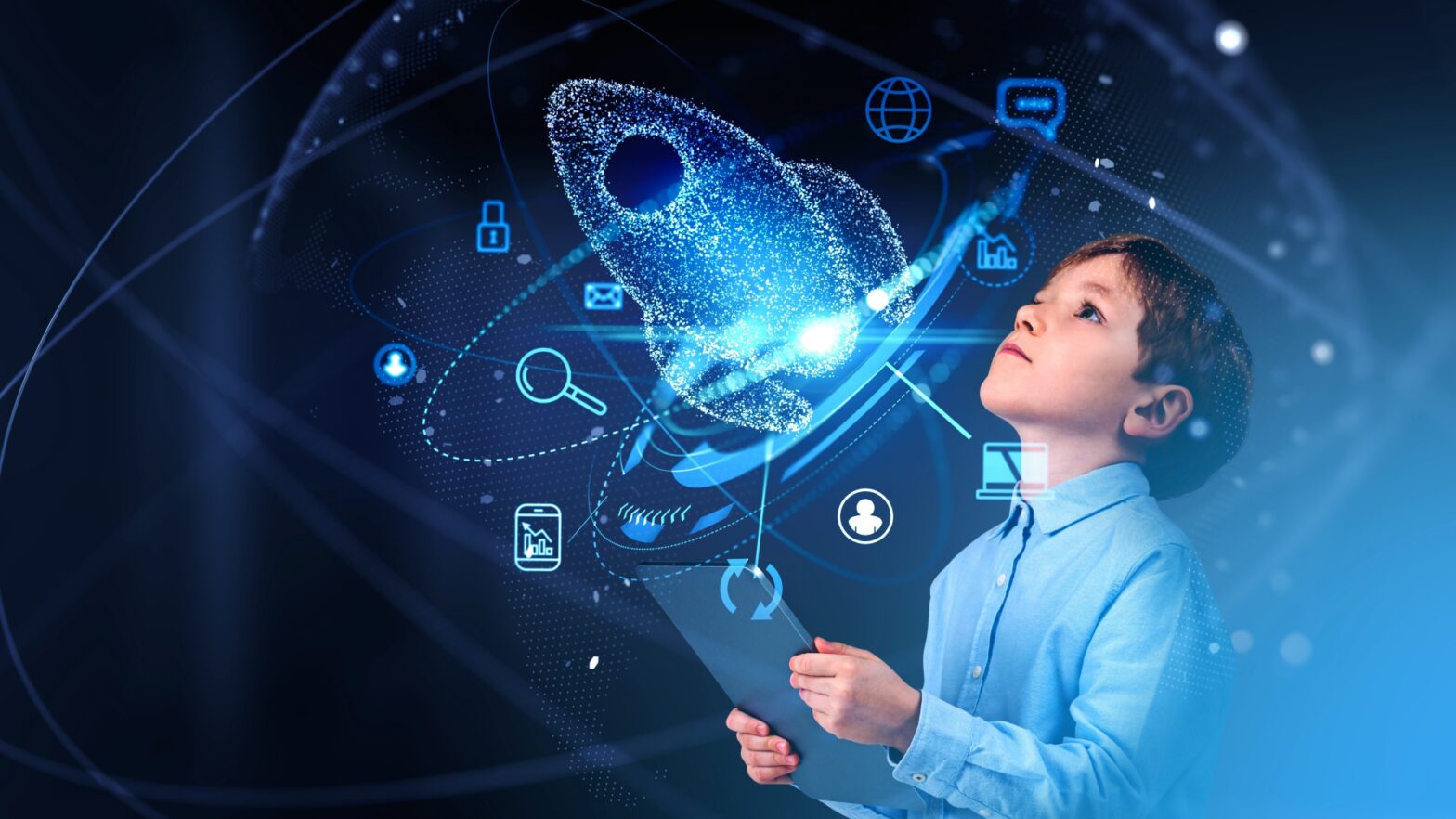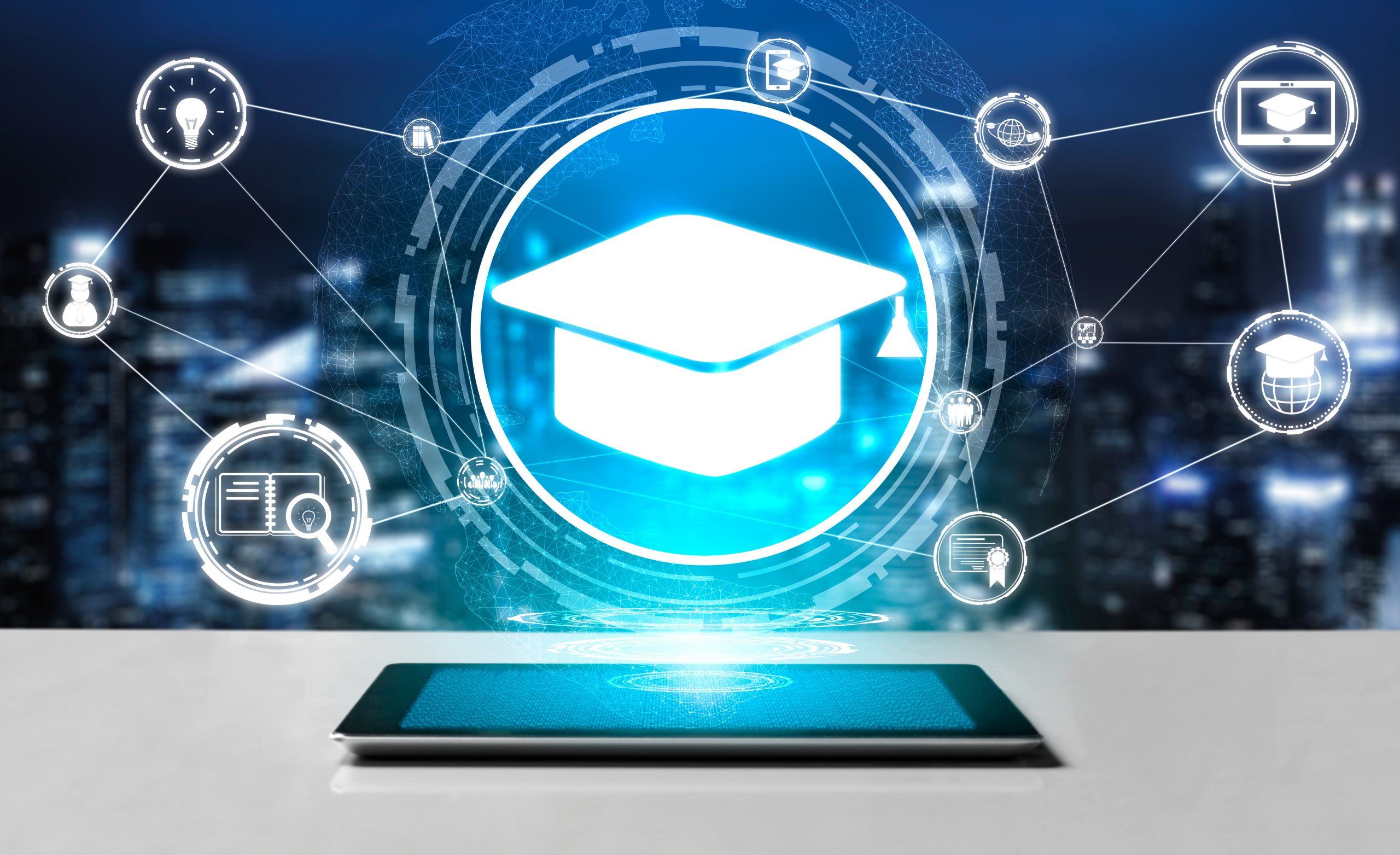Unlock New Opportunities in Education with Belongings Resources and Insights
Unlock New Opportunities in Education with Belongings Resources and Insights
Blog Article
Innovative Techniques for Enhancing Innovation Education in Today's Learning Atmospheres
Innovative techniques, such as hands-on discovering experiences and collaborative project-based initiatives, play an essential function in linking academic principles with functional applications. As we discover these methodologies, it ends up being vital to consider exactly how customized knowing can even more improve the educational experience and promote a much deeper link between trainees and modern technology.
Hands-On Discovering Experiences
Hands-on learning experiences work as a cornerstone in technology education, efficiently bridging the void in between academic understanding and useful application. These experiential tasks enable students to involve straight with tools, software application, and modern technology, cultivating a deeper understanding of concepts that are commonly abstract in standard classroom setups.
By incorporating hands-on knowing, teachers can help with a setting where trainees can experiment, introduce, and troubleshoot. This strategy not only cultivates technical skills but also improves problem-solving capacities, as pupils are encouraged to confront real-world challenges. Furthermore, hands-on experiences often lead to boosted pupil motivation and involvement, as learners see the immediate relevance of their research studies to functional circumstances.
In addition, such experiences can take numerous types, consisting of laboratory experiments, simulations, and interactive projects, every one of which cater to different knowing styles. The integration of hands-on understanding in technology education and learning additionally advertises retention of info, as trainees are more probable to remember concepts they have proactively functioned with as opposed to passively observed. Overall, hands-on experiences are crucial in preparing students for the complexities of the modern-day technological landscape, furnishing them with the abilities and confidence needed to be successful in their future professions.
Collaborative Project-Based Learning
Collaborative project-based understanding equips students to work with each other in teams to resolve complicated, real-world problems, promoting vital skills for the modern-day labor force. This method motivates energetic interaction, important thinking, and creativity, as students work out duties, share duties, and collectively devise services. By immersing themselves in jobs that show authentic difficulties, students develop a deeper understanding of the subject matter while honing their capability to interact and team up efficiently.
In technology education, collaborative project-based knowing can manifest with interdisciplinary projects that include aspects of design, design, and coding. Trainees may collaborate to produce a mobile application or layout a model that resolves a social problem, needing them to integrate various technological principles and tools. This experiential understanding not just boosts technical efficiency yet also cultivates analytic skills and flexibility.
Additionally, such collective ventures promote a feeling of community among trainees, cultivating social relationships and a common commitment to their task end results. As they navigate the intricacies of synergy, trainees learn to appreciate diverse point of views and take advantage of each various other's staminas, preparing them for future professional settings where cooperation is important. Inevitably, collaborative project-based knowing is a foundation of efficient technology education.
Integration of Online Resources

The assimilation of online resources promotes access to up-to-date information and sector standards, which is essential in a swiftly evolving technological landscape. By leveraging systems such as MOOCs (Large Open Online Courses) and specialized educational web sites, teachers can supplement traditional curricula with real-world applications, enabling pupils to engage with existing fads and techniques.

Ultimately, the thoughtful combination of online sources in modern technology education cultivates an extra dynamic, engaging, and relevant discovering experience, equipping students with the abilities and expertise necessary to flourish in an increasingly electronic world.
Gamification Strategies in Education
The unification of gamification techniques in education and learning represents an effective technique to better involve trainees and boost their knowing experiences. By integrating game-like components such as points, badges, and leaderboards into the curriculum, teachers can stimulate motivation and foster a sense of competitors amongst learners. These strategies encourage engagement and determination, particularly in topics that might otherwise show up discouraging.
Gamification can take different kinds, including interactive quizzes, joint projects, and immersive simulations, which permit pupils to apply their understanding in sensible contexts. This interactive method not only makes learning satisfying but additionally strengthens crucial concepts through repetition and immediate comments. As students development, they can track their achievements, advertising a growth mindset and a sense of success.
Additionally, gamification facilitates set apart guideline by satisfying diverse learning styles and paces. Students are encouraged to take possession of their understanding trip, enabling a more customized instructional experience. In a progressively electronic globe, the use of gamification methods can bridge the space in between traditional education and modern technological advancements, inevitably preparing students for future obstacles.
Personalized Understanding Approaches
Personalized discovering methods are significantly acknowledged as crucial for dealing with the diverse needs and choices of students in today's educational landscape. These methods encourage learners by tailoring educational experiences to individual passions, staminas, and learning speeds, consequently boosting interaction and retention.
In innovation education and learning, personalized discovering can take different forms, consisting of adaptive knowing innovations, customized curricula, and project-based understanding tailored to student rate of interests. Platforms that use synthetic knowledge can evaluate a trainee's efficiency data to advise certain sources or tasks that line up with their discovering style.
In addition, personalized learning encourages pupil agency, permitting students to set goals and choose pathways that resonate with their aspirations (Grants). This freedom promotes a deeper connection to the material, ultimately resulting in improved results
Educators play a vital function in this process, employing developmental evaluations to keep an eye on progression and readjust guideline as necessary. Collaborative tools and digital portfolios can also promote tailored learning, allowing trainees to assess their trips and display their success.
Final Thought
In final thought, boosting modern technology education in modern knowing atmospheres requires the implementation of cutting-edge methods that prioritize hands-on discovering, collaborative tasks, and the assimilation of on-line sources. Gamification strategies serve to increase involvement and inspiration, while customized discovering techniques accommodate individual strengths and foster trainee firm. Jointly, these methods develop a dynamic educational experience that prepares trainees for real-world obstacles and grows crucial skills for future success in a swiftly advancing technological landscape.
As we discover these approaches, it becomes vital to think about just how customized learning can further enhance the educational experience and cultivate a much deeper link between trainees and innovation. The integration of hands-on understanding in technology education and learning additionally advertises retention of info, as trainees are extra likely to remember concepts they have actively functioned with instead than passively observed.The incorporation of gamification methods in education and learning represents an effective method to further engage students and boost their discovering experiences. Trainees are equipped to take possession of their Grants discovering journey, permitting for a more personalized academic experience.In conclusion, enhancing technology education and learning in modern knowing atmospheres necessitates the execution of cutting-edge techniques that prioritize hands-on learning, collaborative jobs, and the combination of online sources.
Report this page